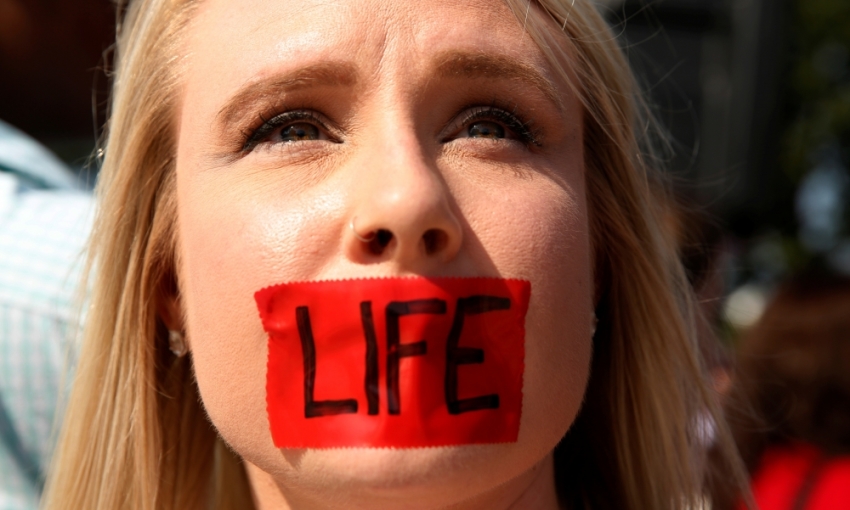Ohio Christian Activists Trying to Get Abortion Prosecuted as Aggravated Murder, Punishable by Life Sentence

A group of Christian activists in Ohio unaffiliated with any of the major pro-life groups are attempting to amend the state constitution to say abortion will be prosecuted as "aggravated murder," attracting a sentence of up to life in prison.
Ballot language in a proposed constitutional amendment submitted to the office of state Attorney General Mike DeWine last Friday wants to "prohibit abortion of all human beings, without exception, and classifying it as aggravated murder in the State of Ohio."
DeWine now has until Monday to determine if the wording of the proposal meets the requirements to put the issue of abortion on the ballot by Nov. 2017, according to The Columbus Dispatch.
Three Christians — Laura Burton of Cleveland, Anthony Dipane of Monroe Falls, and Dustin Paulson of Strasburg — are behind the proposal according the Dispatch which points out that they are not affiliated with any pro-life groups.
"We saw that since Roe v. Wade (the 1973 decision legalizing abortion) no one had proposed a ballot issue saying you can't murder babies," Dipane told the Dispatch.
Paulson who is a youth pastor at Lighthouse Community Church in Strasburg, told the Times Reporter that the movement behind the proposal is being backed by Christians around the state.
"It was a joint effort of Christians around the state to write a legislative measure that would criminalize abortion," Paulson told the reporter.
"We feel the Supreme Court was wrong in Roe vs. Wade," he said, referring to the 1973 ruling by the U.S. Supreme Court that legalized abortion in the United States. "It's been wrong before, in the Dred Scott case."
Paulson who describes himself as an abolitionist rather than a pro-lifer says he wants to get rid of abortion entirely.
"We want to abolish abortion, we don't want to regulate it," he told the reporter. "Pro-lifers want to regulate abortion. You don't regulate a moral evil, you abolish it."
He said unborn babies are human beings from conception, but they are denied due process because of Roe vs. Wade, he said.
When the high court legalized abortion in 1973, he said, justices cited the 14th Amendment to the Constitution. They argued that the right to privacy under the amendment's due process clause extended to a woman having an abortion.
Paulson disagrees.
"That's not in the 14th Amendment," he said. "All of the drafters of that amendment were very much anti-abortion."
The amendment, if approved, would make abortion aggravated murder, which is currently punishable by a sentence of 15 years to life in prison.
Dipane explained that the group used volunteer help to get the required signatures to submit the issue to DeWine and, Paulson explained, that they targeted a lot of churches.
"We don't take donations. We don't pay people. We're financing this out of our pockets at this point," he told the Dispatch.
The proposal which requires 1,000 valid signatures of registered voters for approval was accompanied by more than 100 partial petitions with an uncounted number of signatures said the Dispatch.
DeWine will decide if the wording of the proposal is in proper form. If it is approved, the proposal will be submitted to Secretary of State Jon Husted to verify signatures and forward it to the Ballot Board. It would then require 305,591 signatures from voters to put the issue on the ballot in Nov. 2017.
Kellie Copeland, executive director of NARAL Pro-Choice Ohio, said if the proposal is accepted it would impact on a woman's constitutional right to an abortion and that would be problematic.
"If passed, women and doctors would be imprisoned for any abortion, even one to save a woman's life. Also, the language would block prescription birth control, emergency contraception, IUDs, and could impact access to in-vitro fertilization," she said.
Copeland noted that the proposal is similar to one rejected in Oklahoma that the courts found would violate U.S. Supreme Court decisions saying women have a constitutional right to abortion.



























